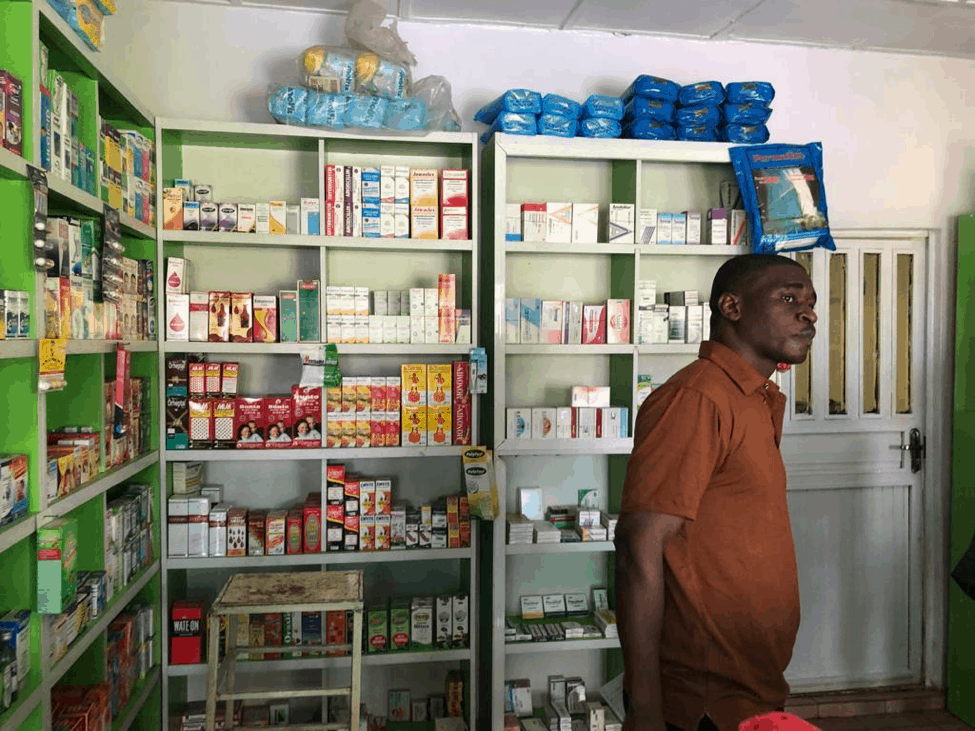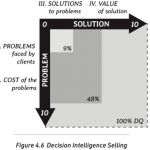A Well-Timed Investment: How Investing in Tech-Driven Healthcare SMEs Is Boosting Africa’s COVID-19 Response
The COVID-19 pandemic has highlighted the urgent need to strengthen healthcare systems in countries around the world. Companies across Africa are playing a critical role in this process, using digital technologies to solve healthcare challenges. COVID-19 is accelerating these digitization efforts, creating opportunities for businesses and investors to both generate profits and have a positive social impact.
The growing nexus between the technology and healthcare sectors also offers strong opportunities for trade and investment between the United States and Africa. African companies in these sectors offer U.S. investors access to new, high-growth markets. And U.S. investors offer African companies access to the biggest and deepest markets and pools of capital in the world. They also provide a commitment to creating local jobs, and support for the integration of new technologies that draw on both U.S. and African expertise.
To help expand these connections, the U.S. government’s Prosper Africa initiative is working to increase trade and investment between the United States and Africa. In turn, American investment is helping to strengthen Africa’s technology and healthcare sectors, enabling businesses that have built innovative solutions to improve their products and reach larger customer bases. Field Intelligence is one such company—a U.S.-led healthcare technology enterprise based in Nigeria that is strengthening the pharmacy supply chain in Nigeria and Kenya.
An Innovative Approach to Reducing Pharmacy Stockouts and Counterfeit Medicines
Field Intelligence’s Shelf Life service helps pharmacy owners manage their inventory and avoid stockouts and missed sales. It serves as a cheaper and more convenient source of alternative financing to these small pharmacies. This is a critical innovation given that fake pills and substandard medicines saturate the African pharmaceutical market, especially when it comes to antibiotics and antimalarials. As a result, every day, Africans unknowingly treat serious illnesses with fake medicines. Many parents taking care of severely ill children are giving them medicines that have only trace amounts of active ingredients—enough to fool a basic counterfeit-detection kit but not enough to break a fever.
Counterfeiting has proliferated in part because of fragmented supply chains, high prices and informal sales channels. Africa has only a few large pharmacy chains. Most of the continent’s pharmacies are small, singularly-owned businesses, and their owners have weak forecasting tools and little pull with suppliers, so stockouts are common.
Through Shelf Life, pharmacists can subscribe to the products they want from a list of more than 20,000 items. Shelf Life delivers the products at no upfront cost, and the pharmacists pay for products as they sell them, so they don’t need a lot of working capital. Reordering is automatic, shifting the time-consuming tasks of taking inventory and forecasting sales to Shelf Life’s platform, which leverages machine learning, artificial intelligence and one of Africa’s biggest health supply chain datasets to make its predictions.

A Field Intelligence customer in Abuja, Nigeria. Photo: Blue Haven Initiative
The average revenue growth for pharmacies that subscribe to Shelf Life is 40% in the first year. Subscribers’ stockout rates average around 4%, compared to a baseline stockout rate of 40%. Because the shelves are no longer empty, pharmacies benefit from fewer missed sales due to stockouts. And because they have access to automatic reordering and a pay-as-you-sell arrangement, pharmacy owners benefit from having fewer expired products, no loan payments and less time spent managing inventory.
Around 300 pharmacies subscribe to Shelf Life, making it one of the largest groups of pharmacies in Africa. Now, it is ready to expand further. In March, the company announced the successful closing of its $3.6 million Series A funding round, led by the Blue Haven Initiative, an impact investment firm based in the United States. This new round of investment will allow Shelf Life to continue to expand throughout Nigeria and Kenya and deepen its product offering.
The Challenges of Fundraising for Entrepreneurs in Developing Countries
Fundraising – especially for the first time – can become a second job for entrepreneurs, piling additional work on top of the countless responsibilities of running a business. Preparing for external investment means responding to investor questions, completing due diligence checklists, preparing financial models and settling on a valuation. All of that takes time. “The hardest part of bringing in external investors is doing that while still operating the business,” says Michael Moreland, Field Intelligence’s co-founder and CEO. It also takes time to find investors that could be good long-term partners, and to build relationships with them. “Remember, you are doing diligence too, looking for the right partners to join you on your mission,” he says.
Investment advisory firms can provide extra bandwidth and guidance as businesses raise capital, helping them become “investment-ready” and matching them with investors. Unfortunately, these services are often too expensive for small and medium-sized enterprises, especially those operating in emerging and frontier markets.
The U.S. government has an interest in high-impact businesses in developing countries, as these enterprises can improve people’s lives while strengthening countries’ economic resilience and self-reliance. In support of the U.S. government’s Prosper Africa initiative, The United States Agency for International Development (USAID) provided Field Intelligence with support for its first fundraiser by financing transaction advisory services from CrossBoundary, a frontier-market investment advisory firm.
“We provided advisory services to help prepare Field Intelligence to raise outside capital for the first time,” says Pooja Yadav, a senior associate at CrossBoundary. “Field has a good perspective on which customer segments and markets represent interesting expansion opportunities, and we vetted those projections by conducting interviews with local pharmacies in urban and peri-urban areas in Nigeria and Kenya to understand their appetite for the service. We then helped translate the market growth assumptions into an estimated valuation range. We base that partly on growth projections, but we also have a good sense of what similar transactions look like based on geography, sector and type of business, which helped give Field a benchmark for their initial conversations with Blue Haven and other investors.”
This support helped Field Intelligence and its investors get on the same page quickly, and it saved investors a lot of time on due diligence, says Lauren Cochran, a managing director at the Blue Haven Initiative. “Valuation is tough in every early-stage business, particularly in these environments that have a lot of uncertainty and very few comparable transactions. CrossBoundary also helped the management team [size the addressable pharmacy market],” she says.
A Well-Timed Investment in the Age of COVID-19
USAID’s investment support was well-timed. Closing its Series A round in March injected $3.6 million into Field Intelligence just as the COVID-19 pandemic began spreading rapidly, thrusting pharmacies onto the front lines of the response. Now, the company is helping those pharmacies stay open safely and adapt to changing customer needs.
“We are doubling down on helping community pharmacies keep their doors open for patients who need them now more than ever,” says Moreland. “We trained all our fulfillment partners on the basics of infection prevention and control and provided them gloves and masks. Then, when the lockdowns began, we secured their right to continue working from the local authorities. We distributed free hand-washing stations, educational posters and queue management tools to nearly 200 retail pharmacies. We launched a weekly newsletter with key service messages, updates on drug availability, guidance, and credible sources of news and information about the response. Anticipating disruptions in global and local availability, we increased service levels and lead-time assumptions in our planning procedures to ensure our pharmacies could remain reliable sources of essentials. To help our clients sustain through this lockdown period that followed the initial response, we have partnered with an SME [small and medium enterprise] lender in Nigeria and Kenya to embed additional affordable working capital finance facilities into our clients’ Shelf Life service.”
Shelf Life has proven to be particularly valuable given the pressure that the pandemic places on pharmacies. “Field’s clients tend to be individuals who each own a small pharmacy, so they usually lack pricing power or access to certain products, particularly in times of shortage,” says Cochran. “Field has been able to ensure a more direct line of communication with the major distributors and drug manufacturers because they have those relationships themselves, so they’ve been able to continue to provide access to drugs that would otherwise have been in short supply.”
Helping African businesses prepare for investment and connecting them with American investors has immediate benefits. It bolsters individual businesses that serve their communities, opening up new investment opportunities and creating jobs. It often unlocks or enables an entire sector, just as Field Intelligence’s financial and logistics infrastructure helps many pharmacies. Perhaps less obvious are the long-term benefits of these transactions, which, if used strategically, can deepen local markets and open new channels of capital. “By supporting the right transactions, you are building an ecosystem of investors,” says CrossBoundary’s Yadav. “Having done one deal in Nigeria or one in the healthcare sector, for example, they are much better equipped to do future deals.” All of this adds up to stronger businesses, better opportunities for investors and greater resilience in developing markets – whether in response to COVID-19 or to other challenges, new and old.
Prosper Africa is a U.S. Government initiative to increase two-way trade and investment between the United States and Africa. The Prosper Africa toolkit includes more than 60 trade and investment support services across the U.S. Government. To support Prosper Africa’s goals, 17 participating U.S. Government agencies are adapting existing tools and creating new ones to help U.S. and African firms adjust their strategies, protect their investments and find new opportunities in the wake of COVID-19.
Kristin Kelly Jangraw is a Senior Communications Advisor for the USAID INVEST initiative.
Photo courtesy of Global.finland.fi.
- Categories
- Coronavirus, Finance, Investing



